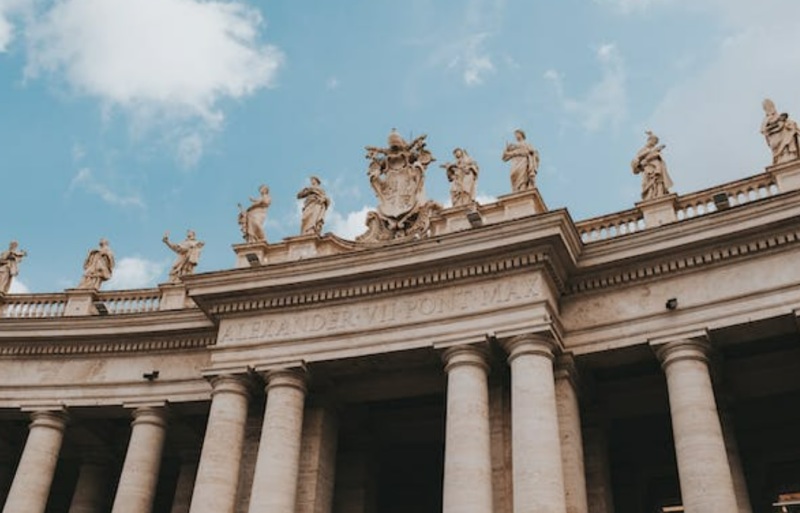
The Roman Catholic Church led by Pope Francis is arguably at a crossroads during a time of global changes that threaten to leave behind those unwilling to adapt.
There have been several key issues that keep on hounding the Church and serve as existential threats. How the Church responds to these issues could spell the difference between its survival and continued relevance to Catholics or signal its collapse and slide into oblivion.
Here are the top five issues hounding today's Catholic Church:
1. Clergy sexual abuse.
There is perhaps no single issue bigger than the allegations of widespread sexual abuse committed by members of the Catholic clergy. These sexual abuse accusations are shocking and almost systematic, as there have been numerous publicized cases of clergy sexual abuse, many of which were committed against minor-age victims.
Jean-Pierre Ricard, a retired French bishop made a Cardinal by no less than the current pope, recently admitted through a statement to committing "reprehensible" acts with a 14-year-old girl when he was still a priest in the 1980s. Ricard said: "35 years ago, when I was a priest, I behaved in a reprehensible way towards a girl of 14. There is no doubt that my behaviour caused serious and long-lasting consequences for that person."
Aside from Ricard, 11 other active and retired senior Catholic clergy members are charged with sexual abuse, according to a disclosure by the French Catholic Church leadership. And aside from these recent cases, there have been many other similar accusations of sexual improprieties by men in cloaks who are supposed to embody Christ's holiness.
2. Abortion stand.
With recent developments, such as the controversial U.S. Supreme Court overturning the landmark 1973 Roe v. Wade ruling, the Catholic Church is again thrust into a highly divisive and delicate issue. While the Church has traditionally been anti-abortion, some Catholics strongly condemn the Church's official stand on the matter.
A report revealed that as much as 58% of German Catholics are not happy with Pope Francis' and the Vatican's statements critical of abortion. Despite his largely liberal views on many other issues concerning the Catholic Church, Francis opts to take the traditional, conservative anti-abortion stand that past popes have taken.
With this internal conflict of views on this specific issue, it's interesting to watch for developments on whether the Church and its members could find a common rallying point.
3. Clerical celibacy.
Catholic priests have long been sworn to adhere to the vow of celibacy. This is the doctrine that prohibits Catholic priests from marrying and instead choosing a life of chastity. Celibacy supposedly allows a priest and other clergy members to serve the Church better.
Incidentally, celibacy was among the top issues discussed during the 2019 Catholic Synod of Bishops for the Pan-Amazonian Region. This issue surfaced amid the shortage of unmarried priests to minister to the Catholic faithful in the region. With the lack of unmarried priests to guide Catholics, the question of whether to allow married men to become priests suddenly gained steam.
4. Church attitude towards LGBTQIA+.
In recent years, the LGBTQIA+ community worldwide has successfully drawn attention to their cause. However, despite such global awareness, individuals who identify as LGBTQIA+ have yet to find the recognition and respect they seek. And it seems they could not count on the Catholic Church to give them the needed acceptance.
There have been several statements and actions from different Catholic leaderships across the world that clearly show discrimination against the LGBTQIA+ community. From an Irish priest who said gay politicians are destined to hell to Denver archdiocese leaders telling Catholic schools not to accept gay or transgender students, there is much left to be desired in how the Catholic leadership and clergy treat the LGBTQIA+ community.
5. Female ordination.
The Catholic Church has been, for technically its entire existence, a male-dominated religion. This setup has been practically unchanged for centuries and does not seem to change in the foreseeable future.This is precisely why ordinating women to become deacons or priests is among the most hotly-debated issues within and beyond the Catholic fold. One small consolation comes in the recent Vatican synod document that included a discussion on women's ordination, which has long been a taboo subject among Catholic religious.
"Women remain the majority of those who attend liturgy and participate in activities, men a minority; yet most decision-making and governance roles are held by men. It is clear that the Church must find ways to attract men to a more active membership in the Church and to enable women to participate more fully at all levels of Church life," the document said.
The unwillingness of the Church to put women into a leadership position is eyed by some as a hindrance to the Church's adaption to modernity. The document quoted the New Zealand episcopal conference report as saying the "lack of equality for women within the Church is seen as a stumbling block for the Church in the modern world."
This is yet another issue that the Church would have to deal with if it expects to adapt to the changing global sentiment on gender equality in the religious realm.
Related Article: 8 Tips How Christians Should Respond to 'New Age' of Persecution



















